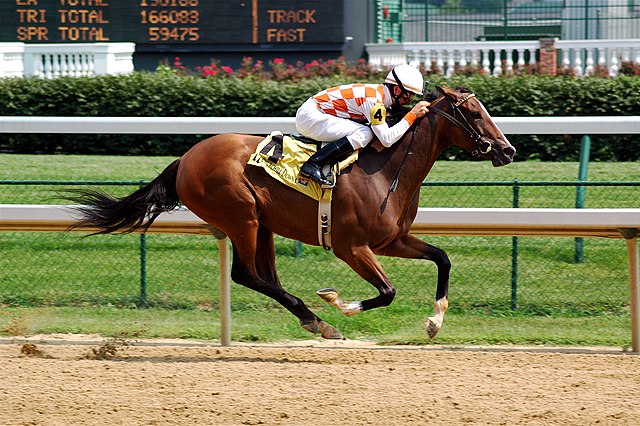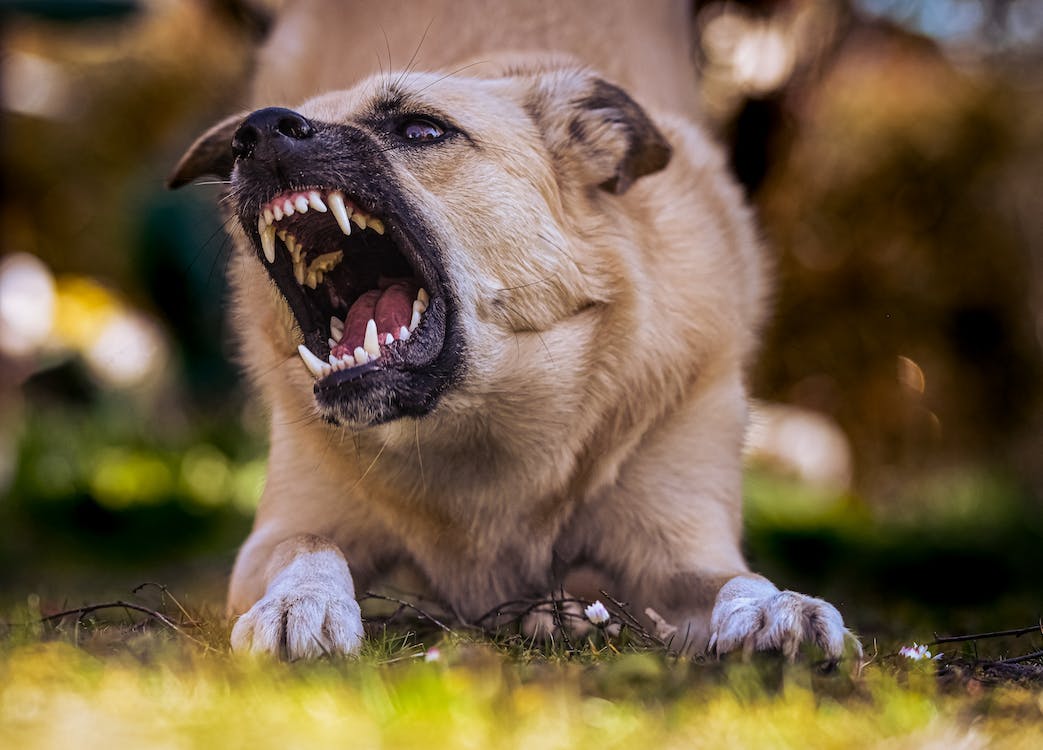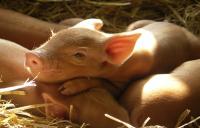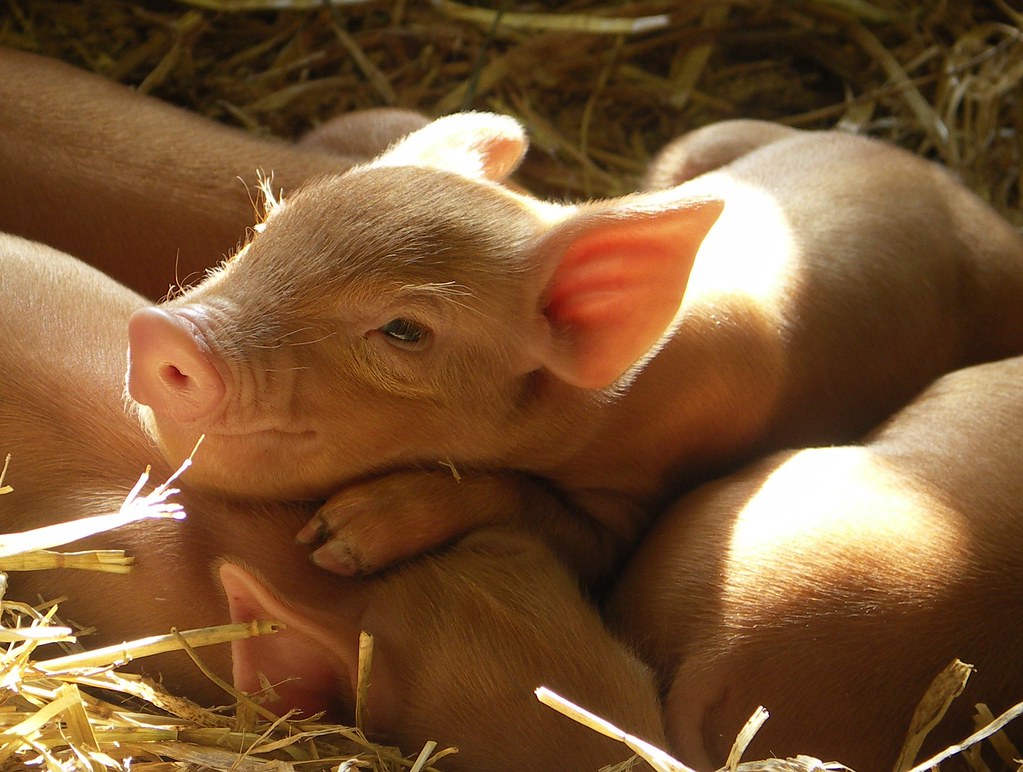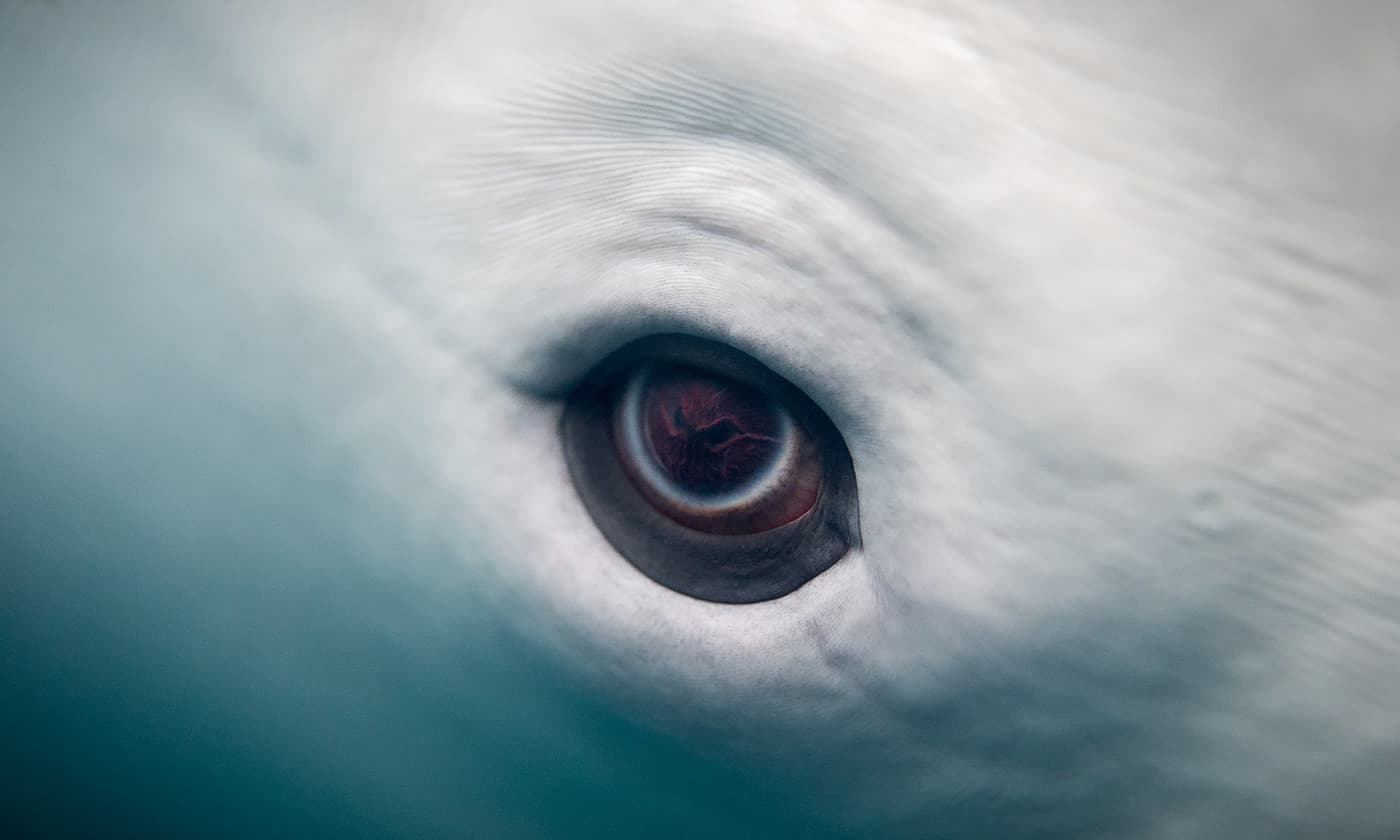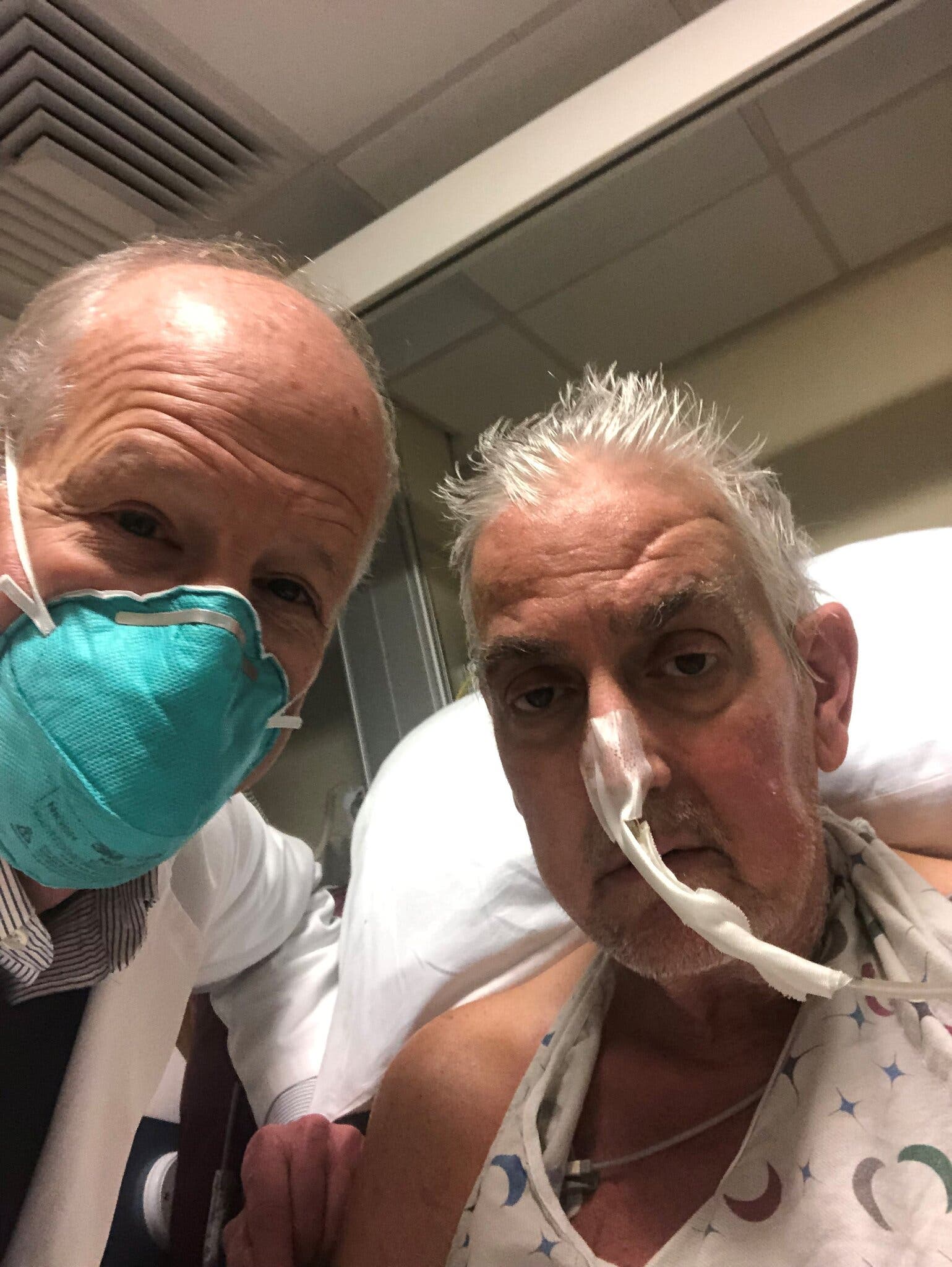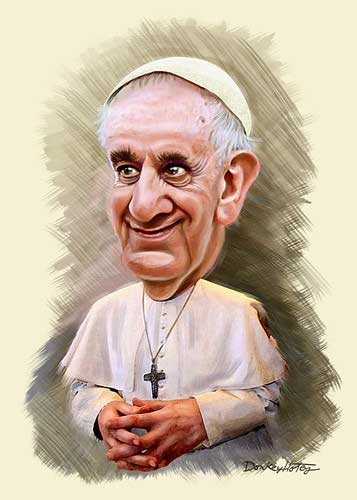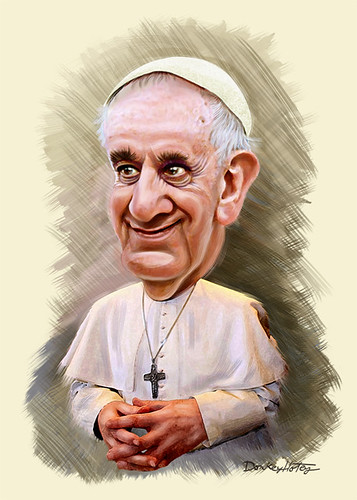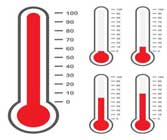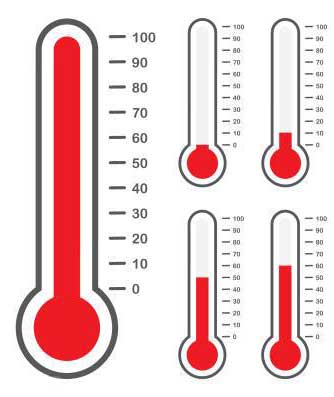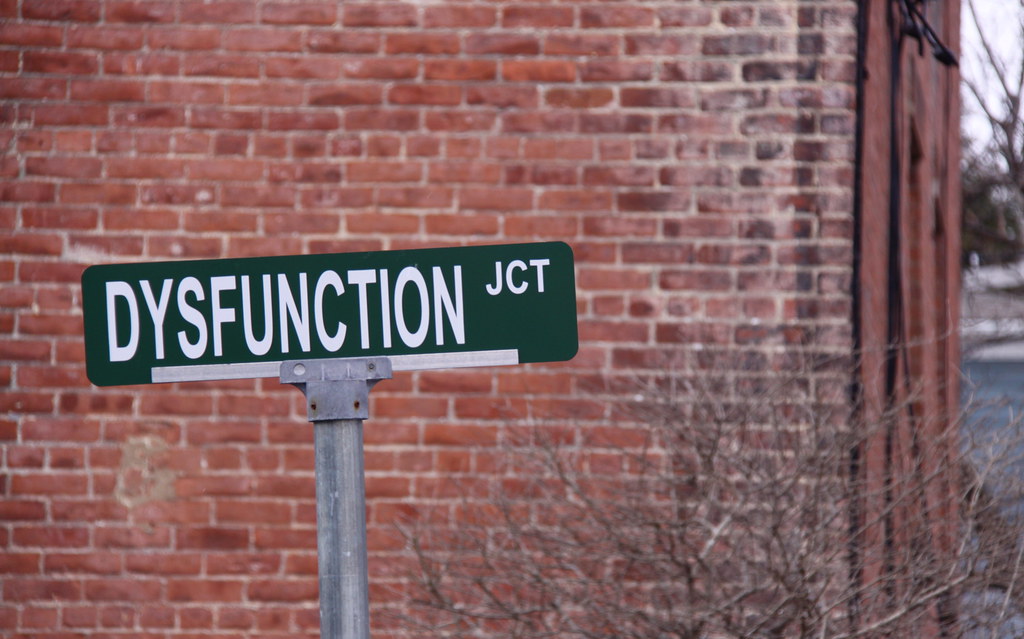
|
Can Horseracing Redeem Itself?
Animal activists have called for reforms to horseracing? is it too little, too late?
Thoroughbred filly at Churchill Downs �?? Wikimedia Commons photo
Many animal advocates feel that horseracing has become too dangerous and that it is past time for certain reforms. After a rocky start to the Triple Crown races, some have renewed calls for an end to the sport without certain reforms going into effect. However, are these reforms too little, too late? A Troubling Triple Crown Season However, these incidents weren’t the end of it by any means. During one of the races leading up to The Preakness, Havnameltdown, the favorite for the stakes race, bucked forward, threw jockey Luis Saez, and continued to run. Saez, complaining about leg pain, received treatment at a local hospital. Havnameltdown had a fractured bone in his left front ankle that veterinarians deemed inoperable. There was some speculation about whether a hit that the horse took as he came out of the gate was to blame. Even as horse advocates mourn the loss of these beautiful creatures, there are renewed calls for changes that could prevent such tragedies in the future. Are the Horses Too Young to Race? Hairline fractures and strained tendons are often difficult to diagnose. In many cases, these injuries can progress to untreatable levels. Surgery is a path that many owners and veterinarians opt not to take. Horses often have difficulties coming out of anesthesia without disorientation, which complicates surgery. Slings or casts might be necessary to keep a limb immobilized following surgery. These restraints often result in the horses receiving further injuries. Should Medications Be Stopped Before Races? One of the problems with many of these medications is their ability to mask signs the horse is in distress. Horses may continue running with severe injuries or with bleeding lungs. If it is easier to spot a horse in distress, steps might be possible to prevent a more serious injury or worsened condition. Do Horses Compete in Too Many Races Per Season? The National Thoroughbred Racing Association (NTRA) has questioned the status quo on horse racing. NTRA has called for implementing solutions, rather than merely identifying problems. Would CT Scans Prevent Injuries? If veterinarians can detect potentially severe injuries before they worsen, they may be able to prevent them from reaching career and life-ending proportions. Is It Time to Ban Whipping? At a race in Bay Meadows Park in CA, a gelding named Imperial Eyes kept running after an injury because of his jockey’s whipping. Imperial Eyes was euthanized after suffering a broken leg. Russell Baze, the jockey, received only a two-week suspension and a small fine. What About Synthetic Tracks Over Dirt Tracks? Does Tracking Gaits Prevent Equine Injuries? Palmer has speculated about whether the technology behind Fitbit devices could detect gaits likely to result in injury. If utilized, such technology may prevent these injuries in the future. The number of horses dying on racetracks is unacceptable to horse advocates. Even many successful horses their ultimate end in on-track euthanasia. We can and must do better for racehorses. *** AJ Demers is a freelance content writer who also blogs at AJ the Irish Lass' Ramblings. Dogs in need of rescue are one of her passions and she networks dogs at some of the highest-intake shelters on Facebook. Living in Texas and seeing the rescue situation in the Permian Basin firsthand has helped her see what awesome people rescuers can be. AJ is a lifelong dog owner who also loves anthropology, jewelry/rosary-making, and good thriller novels. The opinions expressed are solely the author's and do not reflect the opinions and beliefs of the website or its affiliates. When Loose Dogs Cause Injury or Death, All Dogs Are at Risk
Why Texas municipalities need to bring owners of aggressive dogs to heel
Public domain photo courtesy of Alexas Fotos
A February 24th dog attack in San Antonio killed a man, left his wife in critical condition, and injured two others, including a firefighter. The owner was charged with felony counts of attack by a dangerous dog causing death and injury to an elderly person. The dogs in question had a prior bite history before this tragedy. These dogs attacked the couple as they walked from their car to a family member's house. How Many Fatal Dog Attacks Have Happened in Texas? Since 2005, over 80 fatal dog attacks have happened in Texas. Victim ages have ranged from two weeks to 95 years old, demonstrating that such fatalities involve a range of victims. One thing that these attacks demonstrate is that Texas communities have many shortcomings to address in preventing these types of attacks. These shortcomings not only create an environment that causes fatal attacks, they make it harder for dog advocates to bring about meaningful change. Confinement Issues Are a Factor Many locations in Texas face one of two problems related to dog confinement: dogs kept chained contrary to state law and dogs permitted to run loose, known or unknown to their owners. With many cities and counties lacking decent enforcement, the owners are usually not held accountable until a bite or worse occurs. Despite a 2022 law passed that prohibits dogs from being kept permanently chained, many owners continue to chain their dogs permanently without consequences. Some animal control officers (ACOs) are hesitant to enforce the law, sometimes due to severe understaffing or an unwillingness to engage with a potentially hostile owner. Chained dogs are often isolated and kept from proper shelter or access to food and water. These dogs are often very defensive of their spaces and reactive toward unfamiliar people, from utility workers to curious children. Loose dogs may be inclined to chase or attack people or animals in other yards. When the owners fail to properly feed or socialize these dogs, they are more likely to become aggressive. Negligence on the Owners' Part Many dog owners don't treat their dogs as family that have specific behavioral needs. Some of these owners feel that leaving a dog unsupervised without proper stimulation is okay as long as the dog is otherwise cared for. All dogs, regardless of the breed, need regular interaction with their families, as well as people outside the household. Otherwise, the dog won't learn to have proper interactions with people and will be more likely to show aggression to new people that he encounters. "Guard Dogs" in Inappropriate Settings Dog owners sometimes keep large dogs for guarding purposes. Such dogs might be more likely to become aggressive if left alone to guard a property with minimal interaction from their people. Many breeds, such as Great Pyrenees and Anatolian Shepherds, excel as livestock guardians that protect sheep, cattle, and other stock from predators. Such dogs are a feature on many large Texas ranches. However, a ranch in a remote location that has frequent visits from coyotes is different from a suburban or urban neighborhood. When people who have "guard dogs" allow their dogs to roam neighborhoods freely, they are setting the stage for a tragic bite or mauling incident. Texans: We Must Do Better According to the American Veterinary Medica Association, Texans own 7.2 million dogs. This sets Texas apart as the state with the most dogs. As the state with the most dogs, we can and must do more to make the state better for dogs and the people who share their lives with them. We need to do more to hold the irresponsible owners who contribute to attacks accountable. *** AJ Demers is a freelance content writer who also blogs at AJ the Irish Lass' Ramblings. Dogs in need of rescue are one of her passions and she networks dogs at some of the highest-intake shelters on Facebook. Living in Texas and seeing the rescue situation in the Permian Basin firsthand has helped her see what awesome people rescuers can be. AJ is a lifelong dog owner who also loves anthropology, jewelry/rosary-making, and good thriller novels. The opinions expressed are solely the author's and do not reflect the opinions and beliefs of the website or its affiliates. Study Proves Pigs Communicate and Express
"Piglet" by Stephen & Claire Farnsworth
Just look at that photo of the piglet, is there anything cuter? When the film "Babe" was released in 1995 there was a clamor around the world. Here was the cutest pig of them all running around scared of being butchered. Children of all ages protested and refused to eat pig. What to do? Moms and dads went into action telling the children some fairy tale about how much pigs enjoy dying and oh by the way, they taste delicious don't they? The child of course gave in to his/her instincts and mom and dad won another war in horror. Now comes out of academia a study in the person of the University of Copenhagen, the ETH Zurich, and France’s National Research Institute for Agriculture and Food and Environment (INRAE). The study proves the sounds pigs make in their everyday lives are indicative of their emotions. Kind of like what we humans do. The article was published in Scientific Reports and outlines an exhaustive study of 411 different pigs and the sounds they make. The recordings, more than 7,000 of them, were made all throughout the pigs life, from birth right to slaughter. The results were amazing to say the least! An AI driven algorithm was created in order to decipher the various squelches and grunts pigs make in their daily lives. Furthermore it was proven that the algorithm was 92% accurate in predicting the state of mind of the pig via the sounds. Not surprisingly the pigs and piglets were found to indeed be expressing their emotions through the various sounds. It was shown that when the pig was happy, playing or sucking to his/her parents they made short sounds that dropped in frequency. When they were in fear or stressed they produced screams of agony in the form of screams, squeals, and barks that were longer in length. “With this study, we demonstrate that animal sounds provide great insight into their emotions. We also prove that an algorithm can be used to decode and understand the emotions of pigs, which is an important step towards improved animal welfare for livestock,” said Associate Professor Elodie Briefer, the study’s lead author, in a statement. Why is this of import to us humans? First because it once and for all dispels the myth of a the happy pig waiting to be turned into bacon. Secondly it absolutely proves that ANIMALS HAVE EMOTIONS, in other words they are not "animals". Activists in the cause knew this long ago, anyone that had spent time with a pig knew the complex emotionality of the animal. This study however brings the credibility of the scientific community to the table. Will it make any difference? No! Why? Because bacon just tastes too good, better bury the inconvenient truth and have a BLT instead. After all we are human beings, the most violent creature ever created by the synthesis of life. *** Alex is a serial entrepreneur having started multiple successful businesses. After a career in marketing with Fortune 50 companies he entered the world of the Internet in 1999. In 2005 he adopted the cause of the animals as his own. A prolific writer he has been seen and quoted on Good Morning America, The Today Show, CNN, People magazine amongst many others. He currently serves as the President of The Buddy Fund. The opinions expressed are solely the author's and do not reflect the opinions and beliefs of the website or its affiliates. Do only humans have souls, or do animals possess them too?
In common parlance, the word ‘soul’ pops up everywhere. We may speak of a vast, soulless corporation or describe an athlete as the ‘heart and soul’ of his team. Soul music gets us swaying. We want our lover, body and soul. In each case, ‘soul’ connotes deep feeling and core values. ‘Feelings form the basis for what humans have described for millennia as the … soul or spirit,’ the neuroscientist Antonio Damasio eloquently expounds in his groundbreaking book Descartes’ Error (1994). Today, studies increasingly show that many non-human beings feel. Elephants appear to feel grief, while dolphins and whales express joy, or something much like it. Parrots can become cranky, pigs and cows terrified, chickens saddened, monkeys seemingly embarrassed. Experiments have shown that rats become agitated when seeing surgery performed on other rats and that, when presented with a trapped lab-mate and a piece of chocolate, they will free their caged brethren before eating. There’s even evidence that rats take pleasure in being tickled. None of this will come as a surprise to pet owners or anyone who has observed virtually any kind of animal for any length of time. Science is rediscovering what Charles Darwin, in his book The Expression of the Emotions in Man and Animals (1872) concluded: that the variations between humans and other species in their capacity to feel and express emotion are differences in degree rather than in kind. It’s a short step from there to recognition that individual animals have personalities, and to reckon that not only do they live – they have lives. One might even argue that other creatures are more cognisant of feelings than humans are, because they possess a primary form of consciousness: they are aware of themselves and their environment but are less burdened by complexities such as reflection and rumination that typify human consciousness. They live closer to the bone, so to speak. Jeffrey Masson, author of When Elephants Weep (1995), has remarked that animals possess feelings of ‘undiluted purity and clarity’ compared to the ‘seeming opacity and inaccessibility of human feelings.’ Furthermore, we should consider that humans may not experience the full range of feelings found in the animal kingdom. As Humane Society ethologist Jonathan Balcombe points out: ‘In light of their sometimes vastly different living circumstances and sensory capabilities, other species may experience some emotional states that we do not.’ Sentience – the capacity of an organism to feel – is fundamental to being alive. If human beings have souls, they must be more about sentience than consciousness. We are motivated far more by passion than by intellect – what we feel deeply is what drives us, for good and ill. In his book Pleasure: A Creative Approach to Life (1970), the late psychoanalyst Alexander Lowen meditated on these connections, proposing that ‘The soul of a man is in his body. Through his body a person is part of life and part of nature … If we are identified with our bodies, we have souls, for through our bodies we are identified with all creation.’ As long as we are alive – and therefore feeling – we are connected to one another and to the natural world. We are, in a word, ensouled. Extraordinary examples of ensoulment among non-human animals abound. Ethologist Adriaan Kortlandt once observed a wild chimp in the Congo ‘gaze at a particularly beautiful sunset for a full 15 minutes, watching the changing colors’, forsaking his evening meal in the process. Elsewhere, African elephants belonging to the same family or group will greet one another after a separation with a loud chorus of rumbles and roars as they rush together, flapping their ears and spinning in circles. Thanks to the internet, there’s a steady stream of examples of animals demonstrating compassion, from an ape saving a crow to a gorilla protecting a 3-year-old boy when he fell into her enclosure. A particularly striking case of animal gratitude occurred in 2005 off the California coast, where a female humpback whale was found entangled in nylon ropes used by fishermen. As recounted by Frans de Waal in The Age of Empathy: Nature’s Lessons for a Kinder Society (2009): ‘The ropes were digging into the blubber, leaving cuts. The only way to free the whale was to dive under the surface to cut away the ropes.’ The divers spent an hour at the task, an especially risky one given the sheer strength of the animal’s tail. ‘The most remarkable part came when the whale realised it was free. Instead of leaving the scene, she hung around. The huge animal swam in a large circle, carefully approaching every diver separately. She nuzzled one, then moved on to the next, until she had touched them all.’ Animals that express gratitude, play, contemplate nature, act to save a fellow creature, or react mournfully to the loss of family members or other close companions, are all, in my view, demonstrating aspects of connectedness. Such connectedness is the root of spirituality – with the capacity to feel and emote being central. In the end, soul may be a profound matter of fellow feeling. The stronger the capability of a given species for fellow feeling, the more that species can be said to exhibit soulfulness. To view things in this way offers another important step in humanity’s progression towards understanding its place in creation – and to appreciate the inheritance we hold in common with other sentient beings on this increasingly small, restive, and fragile planet. *** Michael Jaweris a researcher and writer based in Washington, DC. He is the co-author, with Marc Micozzi, of The Spiritual Anatomy of Emotion (2009) and Your Emotional Type (2011). The opinions expressed are solely the author's and do not reflect the opinions and beliefs of the website or its affiliates. Republished under Creative Commons license. Originally published by Aeon. Original article may be found by clicking here. 1 in 10 Americans say they don't eat meat - a growing share of the population
About 10% of Americans over the age of 18 consider themselves vegan or vegetarian as of January 2022. That’s the main finding of an online survey we administered to 930 Americans, selected to be representative of the U.S population in terms of gender, education, age and income. The margin of error is plus or minus 2%. Based on our findings, which will be published in a forthcoming academic journal article, we believe that this group of people, numbering some 16.5 million, is evenly split between vegetarians and vegans. Vegans don’t eat anything derived from animals, including eggs, milk and honey. Vegetarians avoid eating the flesh of animals, including beef, pork, poultry, fish and seafood. Changing rationalesUntil fairly recently most people who said they avoided eating meat cited religious and cultural beliefs, animal welfare concerns and personal health precautions. Newer motives have arisen. Environmental activists urge Americans to shun meat. And adopting a vegan diet is increasingly fashionable because of the growing list of celebrities such as Benedict Cumberbatch, Stevie Wonder and Natalie Portman who say they refrain from eating animal products. The swift growth of plant-based meats, now widely sold at grocery stores and served at fast-food restaurants, could be making these diets more convenient and easier to maintain. To be sure, the average American still consumes a lot of meat and poultry: more than 250 pounds per person every year, plus another 20 pounds of fish and shellfish. But additional evidence does suggest that the share of Americans on plant-based diets is rising. When Purdue University agricultural economist Jayson Lusk led a survey of over 1,000 Americans monthly from 2013 to 2017, he found that only about 5% of Americans considered themselves vegan or vegetarian. That matched the results of a 2018 Gallup poll. A more recent version of this survey using similar methods, now headed by Glynn Tonsor, a Kansas State University agricultural economist, has found that this proportion now stands at about 10% in January 2022. That’s the same as our estimate, and it offers further evidence that the share of Americans who are vegans or vegetarians has doubled in recent years. Partial vegetariansHowever, not everyone who identifies as vegan or vegetarian sticks with their diet all the time. A minor scandal arose when New York City Mayor Eric Adams, a self-proclaimed vegan, confessed that he occasionally eats fish. But Adams is no anomaly. It’s common for people who describe themselves as vegetarian to occasionally eat fish or meat. Food researchers like us call them partial vegetarians, but they might refer to themselves as flexitarians. And there are probably more partial than true vegetarians in the U.S. We see two good explanations for that. Some people eat so little meat they truly are more of a vegetarian than a nonvegetarian, so when asked in a survey they select the identity that best describes them. Another explanation could be the common tendency to misrepresent your own behavior in line with what you believe others will find virtuous. Will this trend toward more vegans and vegetarians continue? Only time will tell, but food companies will certainly be watching. *** Raised in South Carolina, Bailey attended Clemson University for his B.S. and Kansas State University for his M.S., both in the field of agricultural economics. He then became ?Dr. Norwood? by obtaining his PhD in Economics from North Carolina State University, and is now the Barry Pollard MD / P&K Professor of Agribusiness at Oklahoma State University. The opinions expressed are solely the author's and do not reflect the opinions and beliefs of the website or its affiliates. Republished under Creative Commons license. Originally published by The Conversation. Original article may be found by clicking here. 7,000 a number to live in infamy
Question, why is 7,000 a number to be ashamed of, one to live in infamy? Answer; because that is the number of animals the average human being consumes in a lifetime. Yes, 7,000 lives of lesser creatures, a lot of them mammals, are killed for us and their flesh eaten by us. Here's the breakdown; 11 cows, 27 pigs, 2,400 chickens, 80 turkeys, 30 sheep and 4,500 fish per human being. To most the aforementioned merely elicits a shrug. After all, we humans are created as omnivores, we love the taste of meat (also knows as dead flesh). However in this article I want to examine the path we traverse to arrive finally at beings that kill and savor the taste of animal flesh. All babies are born with the ability and the necessary enzymes to digest meat. This is the heritage of our carnivore ancestry. However, we are also born with something else uniquely human --a mind capable of analytical thinking. The latter is essential as it is the cornerstone of all you see around you in the form of human civilization. We are because we think! When a four-year-old is given their first bites of a juicy burger they enjoy the taste, the warm blood oozing brings moisture to each bite. Throw a slice of cheddar cheese on it and the child feels next to heaven. Yet experiments have shown that when told of the source of the burger, that it came from a living cow, shown a photo of such cow, and told further that the cow was killed and cut up in order to make that delicious burger, the child is reviled by the truth. In many cases they react with hysterics and tears, then go into a tirade about how they will no longer eat animals. Often they turn on the parents for having made them do such a heinous act, sometimes going as far as striking them in fits of anger. What is happening here? The child one minute is enjoying a delicious burger and the next moment is attacking his/her parents for having made them eat it. This is where that analytical thinking becomes critical. The child enjoys the taste of meat while they are in primal mode. However once enlightened, the processing power of the mind takes over and informs the child that they are the beneficial killers of perfectly innocent animals. The conundrum is striking. Note the myriad of cartoons where the heroes are animals. From Mickey Mouse to Donald Duck to Wiley Coyote, the animals represent humorous and empathetic figures. This trend has only accelerated with modern feature films such as Babe and Nemo. How does a child reconcile the loving antics of an animal on screen to the cruelty of slashing its throat and eating its flesh? The answer is, they don't. They rebel. The analytical mind is ruthless in its logic and resultant accusation of the child as a killer of creatures they endear. For parents this represents an unnecessary complexity. Meat is cheap, it contains many nutrients and it's easy to prepare. So how to get the child to enjoy and love meat while also loving cartoon characters and animals in general? Firstly, the parents have a head start. Children were primal creatures before they were four years old, thus they actually enjoy the taste of meat. All a parent has to do is disconnect the images of the playful and kind animals from the juicy burger on the plate. This effort almost all parents engage with vigor. They absolutely do not want to get into a debate about the morality of eating meat. Best leave things alone. Don't tell the child where meat comes from. Don't discuss the issue. Just let them savor the taste. The child on their part aides by suspending disbelief. They know where the meat comes from, but they shield their mind from accessing the logic that would make them co-killers. All of society joins in the effort to blindfold the children. You will see no photos of cows, sheep or chickens next to the meat aisles in the supermarket. The red meat itself is innocuous, wrapped in cellophane in sterile white trays. The back room where butchers are cutting up the slabs are hidden, inaccessible to shoppers. A child walking past a hundred dead animals is allowed to suspend disbelief and act as though the meat is nothing but a piece of plastic. Only 5% of Americans identify as vegetarians currently. This is mostly due to the extreme efforts of parents and society to blindfold the children. Studies have shown that once a child determines that they will refuse to harm animals, that way of life often carries on for a lifetime. The great majority of today's vegetarians started the journey at a very young age when somehow they were awakened to the secret knowledge and the analytical mind forced them to choose mental sanctity over the pleasures of the pallet. We are in the midst of an ecological disaster where study after study indicates a plant based diet, along with using less fossil fuels, is the only path to saving the planet. Yet parents, the people most capable of changing the course of our demise, refuse to educate their children about meat. Just telling the truth will go a long way, but they won't. Again, why? Mostly because the parents, after a lifetime of consuming animals, don't want to feel inferior to their four year old. That a child who is unable to accomplish much else is however able to choose the path of morality when fully informed, is demeaning to the parents self identity. It shocks them and their own dormant analytical mind kicks in making them feel guilty and ignoble. Thus self preservation is triggered. A macabre dance unfolds between society and the parents, both complicit in keeping the truth a secret. The Internet is full of articles outlining the methodology parents can employ to convince their child to eat meat without inciting the aforementioned reactions. Driven by practicality, economics and self absorption, the parents and society thus conspire actively in misleading the child even when merely telling them the truth would save the planet and possibly that same child's future life. *** Alex is a serial entrepreneur having started multiple successful businesses. After a career in marketing with Fortune 50 companies he entered the world of the Internet in 1999. In 2005 he adopted the cause of the animals as his own. A prolific writer he has been seen and quoted on Good Morning America, The Today Show, CNN, People magazine amongst many others. He currently serves as the President of The Buddy Fund. The opinions expressed are solely the author's and do not reflect the opinions and beliefs of the website or its affiliates. Caring for animals when humans are in distress
A sin or a gift?
Boris Johnson
An interesting recent occurrence has been mostly ignored by the mainline media. During the chaotic exodus from Afghanistan, as foreigners and Afghans were fighting to escape prior to the Taliban moving in, apparently a drama was unfolding at 10 Downing Street. As outlined in this Guardian article, Boris Johnson, the British Prime Minister, gave direct orders to the foreign office to save animals in Kabul that were in mortal danger. According to the article Mr. Johnson called the foreign secretary and ordered him to 'save the animals' of a British cat and dog rescue based in Afghanistan. “Equivalent charity Nowzad, run by an ex-Royal Marine, has received a lot of publicity and the PM has just authorized their staff and animals to be evacuated,” an official working for Lord Goldsmith writes to another foreign office official. “In light of the PM’s decision earlier today to evacuate the staff of the Nowzad animal charity, the [animal charity – name redacted] is asking for agreement to the entry of [details redacted] staff, all Afghan nationals.” Said another email. However when confronted with the episode, Mr. Johnson called it “complete nonsense”. That same day Downing Street followed: “At no point did the prime minister intervene. We have always prioritized people over animals.” So why is this story of import to this publication? Well, the aforementioned last sentence says it all, "we have always prioritized people over animals". Now, we are not suggesting the opposite, all things being equal people should come before animals. However what we find fascinating is the level of the controversy emanating from a simple and caring gesture by the British PM. One that he actually had to back off as the political winds were getting too severe. While a whole range of animal activists are pushing legal systems to recognize animal sentience, here in plain sight we see just what they are up against. Even a whim of decency, humanity and caring for the animals caught in a quagmire not of their own making brigs down the political house, to a point where the PM actually has to deny the actions. No matter how incriminating the above emails be. The press in England is having a jolly old time trying to pin blame on Johnson, blame for what? For being decent, for caring for animals? His great sin apparently was that he talked about animals when humans were in danger. Even considering the animals ALONG WITH THE HUMANS is apparently a sin to be punished. Being a political animal Johnson of course denied the entire episode occurred. However as a barometer of how far we have moved the pendulum in the "Animal Wars", the Afghan affair seems to indicate we have a long way to go. When will humans consider it kind, compassionate and a sign of great leadership that a man thought about the welfare of the animals along with the humans in his decision making? Will anyone alive today ever see that glorious day? I doubt it, for if that day ever arrived we would be witnessing a civilization in harmony and peace with itself. A far cry from the world of today indeed. *** Alex is a serial entrepreneur having started multiple successful businesses. After a career in marketing with Fortune 50 companies he entered the world of the Internet in 1999. In 2005 he adopted the cause of the animals as his own. A prolific writer he has been seen and quoted on Good Morning America, The Today Show, CNN, People magazine amongst many others. He currently serves as the President of The Buddy Fund. The opinions expressed are solely the author's and do not reflect the opinions and beliefs of the website or its affiliates. An Anatomy of Cruelty
Actor playing Heidrich in the film Conspiracy depicting the decision to start the Holocaust
All those with an analytical mind have at some point questioned the reasoning behind humans' cruelty to animals. The thinking mind knows how much power humans wield over animals, recognizes the submissive nature of most dogs and wonders just why some humans harm and torture animals. A well written essay in The Washington Post entitled "Why are so many people so cruel to their dogs? My search to understand a hidden scourge." delves deep into the thorny question with real life anecdotes. For all his effort, the best that the author concludes is that the horrid behavior toward animals is driven by economic conditions. He tours a land he calls "No-No Land", rural, poor and uneducated - with PETA volunteers. However in this writer's opinion, the effort falls short. Exactly why do poor uneducated people feel the need to torture weaker beings? To seek an answer one must first ask, would these same people mistreat weaker humans if able to?. History gives us a glimpse to an answer with an emphatic YES! From Sulla to Timur to Hitler, there were always humans ready to do the most heinous, most cruel, acts of barbarism . They did it all, raped women, chopped the heads off babies, and burned people alive. Then had a good dinner and slept soundly until the next morning, when they started their evil deeds anew. In modern times, Reinhard Heydrich has captured infamy. An important Nazi leader, he would return from work each night to the loving arms of his picture-perfect family of three children, after ending a long hard day killing 10,000 mostly Jewish mothers, elderly and children. How was Heydrich able to balance the horrid deeds he was doing during the day with the warmth and love of his family in the evening? This question has perplexed humanity, in particular psychiatrists, for nearly a century. Behold the story of Tariek in the aforementioned article, sitting on his porch in No-No Land with his dog Tee Tee and her two puppies. They are dying as Tee Tee is so malnourished that she has nothing to give of her body. Tariek is offered to have the dogs taken away to be nourished. He says NO! He says "this is a business, I sell them puppies". The PETA people plead to at least take the mother and one very sick puppy. Again an emphatic NO!. In desperation they offer him money, reply is "I don't need money, I have plenty of it." And to prove it he pulls out a large wad of cash. What's going on here? What exactly is going through Tariek's mind as he utters those contradictory words? Is he searching for an excuse to be cruel? To this writer, this sort of banal cruelty emanates deep within the moral soul. Economics do play a large part, as the capitalist system of winner take all leaves out huge chunks of the population. These leftovers are angry, frustrated and boxed in, so they redirect that anger onto an object where they are clearly superior and dominant. "I may be a loser among humans, but in my home I am still king". And to prove it to themselves, they beat up on the poor dog. But economics does not fully capture the issue; Heydrich did not have poverty issues, yet his cruelty became legendary. Again to this writer, who is no behavioral sociologist, the conduct springs from an internal imbalance in the value system of the individual. Education can mitigate, but sadly these abusers are created faulty at inception. In this instance wealth and education become key medicines in addressing an affliction of birth. But as almost all medicines are, they are not curative, but rather temporary relief. Thus a highly educated and wealthy individual can fall back into his natural state at any given moment. Michael Vick is a perfect example of this phenomena. If the patient is defective at birth and incurable, is there anything they are motivated by? Yes, FEAR! They are motivated by fear in the same manner as all of life is. They fear punishment as much as anyone. This is how murder, rape and thievery has been mostly eradicated among humans. Punish them and self survival will kick in, no more chummy self adulation. Thus the question arises "why have our political and moral leaders not implemented the legal punishments that would go a long way in taming animal cruelty"? Again, because our elected leaders are but a mirror image of society itself. In a system where 40 senators can block any new laws, a proportion of lawmakers are born just as defective as the respective proportion in the general population. In fact a cogent argument can be made that the incidence of defective legislators is even higher due to the arduous path required in attaining office. It is not coincidence that all animal welfare legislation is blocked by red states, the so called No-No Land! Acts of cruelty to animals are not mere indications of a minor personality flaw in the abuser, they are symptomatic of a deep mental disturbance. The correlation between animal cruelty and human violence is well documented in multiple studies. Cruelty is cruelty! Many of the abusers are the same people that beat up their wives and rape their daughters. The only reason they are not possibly running a concentration camp is because they were not offered one, as Heydrich was. While we humans always shine a glorious light on ourselves, in fancy television commercials and feel good articles, no one points the finger at the true culprit of our cruel intentions. Blanketed over by society, the defective among us roam free to partake in evil. Until punishment is fielded for animals mirroring human cruelty laws nothing will change. No amount of nice talking will convince, no amount of shaming will cajole, no amount of dejection will impact. *** Alex is a serial entrepreneur having started multiple successful businesses. After a career in marketing with Fortune 50 companies he entered the world of the Internet in 1999. In 2005 he adopted the cause of the animals as his own. A prolific writer he has been seen and quoted on Good Morning America, The Today Show, CNN, People magazine amongst many others. He currently serves as the President of The Buddy Fund. The opinions expressed are solely the author's and do not reflect the opinions and beliefs of the website or its affiliates. Pig Heart Transplanted Into Human
A revolution in science and ethos
Mr. Bennett in a much publicized photo
On Friday January 7th, 2022 news broke of David Bennett Sr. who had just become the first recipient of a transplanted pig's heart in a procedure conducted at the University of Maryland Medical Center. As of this writing Mr. Bennett is doing well and the new heart has taken over all pumping functions in his body. This is a momentous event in the annals of humanity as it opens a new chapter for our species' evolution, potentially leading to a society where animal organs become the de facto "replacement parts" for our bodies. While the medical science behind the operation is revolutionary and ingenious, what are the moral implication of this new medical chapter? First, the basics. The pig whose heart was used was bred specifically for transplantation. In order to minimize chances of rejection of the organ by the human body, a potentially fatal reaction, scientists genetically engineered the pig at birth. The heart transplanted into Mr. Bennett came from a genetically altered pig provided by Revivicor, a regenerative medicine company based in Blacksburg, VA. The pig had 10 genetic modifications. Four genes were knocked out, or inactivated, including one that encodes a molecule that causes an aggressive human rejection response. A growth gene was also inactivated to prevent the pig’s heart from continuing to grow after it was implanted. In addition, six human genes were inserted into the genome of the donor pig — modifications designed to make the porcine organs more tolerable to the human immune system. This laboratory invented pig was kept alive waiting for the appropriate moment. When the FDA gave approval for the dicey surgery on new year's day, the pig was immediately killed and its heart salvaged for insertion into Mr. Bennett's body. The medical community and the media celebrated it as a "watershed" moment, but is it proof of the elevation of our species or further evidence of our moral quagmire? We live in a world where 10 billion (yes Virginia, that's 10 with a big B) animals are killed at human hands each year worldwide for human consumption. Thousands of others are killed in horrid experiments for cutting edge medicine and many for things as banal as cosmetics and hunting. Far from the nobility of extending life, our collective ethos has encompassed a philosophy where the killing of animals for pleasure is an acceptable pastime. The human race does not care for any of these other vagrancies. We care mostly for ourselves, even in that we do not excel as exemplified by the continuous wars that have maligned the human race, where we actually kill each other for honor and glory. So what relative importance does this epic surgery hold when held in objective context of our overall actions? To create a pig, modifying its genes, in preparation to be murdered so it can contribute to the continuation of a human life, is this a moral action? Of course not. Why does Mr. Bennett, a non exceptional human, deserve an extension to his 57 years of life at the cost of the life of a 1 year old healthy animal? By way of example, while the Internet was full of photos of Mr. Bennett not a single photo of the pig that gave his life for him could be found by this writer. However when viewed in retrospect, against the backdrop of billions killed for unnecessary food and killed for idiocy such as cosmetics, the continuance of life from a pig to a human seems almost noble. Life is a cruel gift. It's resource driven survival instincts project and create a world of fear and uncertainty where invariably the strongest do survive. If we are to ever find our pathway to the singularity of a great species, we need to eventually unpeel the onion. The layers must be put back from outside inwards. The killing of animals for such mundane things as cosmetics must first stop. Second, then the eating of animals must end. And then and only then can we look at this new science and ask ourselves, is killing a pig so that I can live a legacy I should desire? While I celebrate the extension of life Mr. Bennett was given and the astonishing science therein, I mourn for the helpless pig that was born, modified and killed in the name of advancement. But before we all march out to the street decrying this latest chapter, we have work to do in other much more acute venues. *** Alex is a serial entrepreneur having started multiple successful businesses. After a career in marketing with Fortune 50 companies he entered the world of the Internet in 1999. In 2005 he adopted the cause of the animals as his own. A prolific writer he has been seen and quoted on Good Morning America, The Today Show, CNN, People magazine amongst many others. He currently serves as the President of The Buddy Fund. The opinions expressed are solely the author's and do not reflect the opinions and beliefs of the website or its affiliates. Pope Reprimands Childless Pet Owners
Freedom of choice applies to all except...
"Pope Francis - Caricature" by DonkeyHotey is licensed under CC BY-SA 2.0.
Once again Pope Francis has entered the fray regarding decreasing child bearing rates. This follows his 2014 outcry that not having children was a "phenomenon of cultural degradation". This time he says that people who do not choose to have a child, and instead choose to have a pet, are exhibiting a "form of selfishness". The pontiff went even further adding "Sometimes they have one, and that’s it, but they have dogs and cats that take the place of children. This may make people laugh but it is a reality." He was incensed by individuals who let pets “take the place of children” for leaving civilization “without humanity,” stating they deprive society of “the richness of fatherhood and motherhood.” An interesting precept and perspective from a man not known for being a great lover of animals in general. But what exactly is going on here? Should the world hark the words of the pontiff? It is clear that couples are choosing not to have children. While a global phenomena, the trend is particularly acute in the developed countries. France's birth rate is down 26% since 1982, with most of the acceleration occurring after 2010. Couples are choosing to have fewer children, the less educated the lesser children they seem to want. The correlation between college graduates and non graduates is particularly striking. Unintuitively mothers with graduate degrees had children at ALMOST TWICE the rate of non high school graduates. Pet ownership by education is somewhat flat across education classes, as 64% of high school diploma or less have a pet vs 59% of college graduates. What does all this indicate and why has the pontiff waded into the waters certainly the domain of personal choice? Firstly he is talking to the churches' audience, less educated tend to be more religious. Additionally the statistics above indicate 'his audience' is choosing not to have children. Why? "It's the economy ****". In today's highly specialized job market, the less educated are at dearth to find stable, well paying jobs. While they tend to be believers, they counterbalance that with the financial impact of having children. The pope's reply is to call them "selfish". Apparently he is unconcerned with human overpopulation, the climate crisis that has been propelled by such overpopulation and specifically the happiness and welfare of his dominions. How can this be? Pope Francis seems to be a caring and gentle man, known for his practicality and intelligence. The answer lies in the dogmatic religiosity the Catholic church forces all its adherents to abide by. While a perfectly sound argument can be made that we need to "de-populate", that most of the evils we face today emanate directly from human overpopulation, the Catholic church has always stood for more children --no matter the cost to humanity other animals and the planet. Of course the statistics confirm many childless women confer their maternal instincts on to pets, loving them and caring for them as though they were their children. The reality is that in an enlightened world 'motherhood' takes on a variety of forms, just as love itself confounds observers with its myriad of shades. However, the devotion to a pet is heretical to the pontiff when it replaces the love and caring of a child. According to him, we exist in order to have children, confirming the instincts of most animals and all insects. When we break the chains, instead of finding a source of personal freedom and enlightenment we become a "phenomenon of cultural degradation". Personal choice plays no part, much as the teachings of the church, consistently remain against any form of abortion. One thing we can absolutely say about Pope Francis and the Catholic church is that they are at least consistent. While to many the church is a relic of the checkered past of humanity, a minority still fervently adheres to and listens to the pontiff. Sadly as the world edges closer to the precipice our moral leaders cling to ancient books as though only the past confers wisdom and knowledge. Reality be damned! *** Alex is a serial entrepreneur having started multiple successful businesses. After a career in marketing with Fortune 50 companies he entered the world of the Internet in 1999. In 2005 he adopted the cause of the animals as his own. A prolific writer he has been seen and quoted on Good Morning America, The Today Show, CNN, People magazine amongst many others. He currently serves as the President of The Buddy Fund. The opinions expressed are solely the author's and do not reflect the opinions and beliefs of the website or its affiliates. A Checkup After 14 Years
How far we have come and yet so far to go
On March 18, 2010 I wrote the following article for the Huffington Post, Christmas Only Comes to Lucky Dogs. Now almost twelve years after that day I thought it wise to look over the animal landscape and assess our role in it. On that fateful day almost 12 years go, the U.S. was killing around 4 million dogs a year (as stated in the article). Today this number is presumed to be closer to 1 million. How is this possible? A 75% reduction in the killing of our best pals? The answer is "The Internet stupid!" The Internet has of course changed all of our lives and in the case of companion animals it has given them life. It would be a mistake to attribute this success to the growth of compassion and conscience in the American citizenry. Even though it brings such a hopeful ring on Christmas day, it's not close to the truth. People always wanted to adopt, almost 60% of homes have a pet. So how did the Internet accomplish this miracle of morals? It was, rescues that played the critical role in the puzzle. We always knew there were thousands of people (mostly women) willing to give of their lives in order to save a given dog from being killed. But it was very cumbersome back then to deal with the shelters and then to find an adopter for the rescued dogs. Imagine a small rescue in rural Oklahoma, takes in a dog, with a volunteer agreeing to foster the dog until it gets adopted. How did they find an adopter before the internet? No money for advertising, no television interviews, no social media. How is the word going to get out there that this dog needs a home? The internet completely transformed the landscape. Dedicated people built their networks and communicated to hundreds of thousands with just a few clicks of their mouse and for no cost. DogsInDanger was at the forefront of this revolution. We knew before just about anyone that an internet listing of dogs would work, it would result in adoptions. We went to work in 2007 and shocked the country with photos of dogs pleading for their lives. Where is the animal landscape heading today? The power of the internet has not subsided. All the trends are still at force albeit with less forcefulness. The next evolution in the arena is on the legislative front. This is where the lives of animals will take on greater value than medium rare steak. The internet again will play a central role, however, sadly the throngs of kindhearted women that drove the rescue revolution don't seem to be interested much in implementing systemic change. They are mostly content saving one dog or cat at a time. We will need again an army of the compassionate, the unselfish, that will make our legislators do the right thing. Don't expect them to do it on their own, that will never happen! When it comes to advancing the rights and interests of all animals, climate change may be the most powerful catalyst yet. 30% of all toxic gasses that are emitted into the atmosphere are a direct result of animal farming. But again, don't expect the farm lobby to help. They would rather see the earth in ashes than be a part of the solution. Once again legislative change is the only possible path, and once again an army of caring individuals will have to come to the rescue. In this case there is more hope as survival cuts through all ideologies. It's not just for animal lovers. Yet whether due to conscience or self survival, those essential armies have not yet come into existence. At least not as of the date of this writing. On this Christmas Day we can at least take solace of the last decade's great accomplishments and for DogsInDanger in particular, be proud of the small role we played in this evolution of caring. The road ahead is long and winding indeed. We will traverse it knowing fully that the well being of animals is a metric for the well being of the human race. For when we care for the weakest in the chain of life, we evolve, we become masters of our destiny rather than mere tools of our primal instincts. If the day ever arrives when humans treat animals with respect as sentient beings, we will finally have seen a glorious day without war, hatred, ignorance and prejudice. If that sounds too good to be true, you may well be right, but as a human being hope shines ever eternal in my soul. *** Alex is a serial entrepreneur having started multiple successful businesses. After a career in marketing with Fortune 50 companies he entered the world of the Internet in 1999. In 2005 he adopted the cause of the animals as his own. A prolific writer he has been seen and quoted on Good Morning America, The Today Show, CNN, People magazine amongst many others. He currently serves as the President of The Buddy Fund. The opinions expressed are solely the author's and do not reflect the opinions and beliefs of the website or its affiliates. Oh Them Puppy Mills
Everyone hates them but they never go away
I live in New York City. During the mayoral election of 2013, City Council Speaker Christine Quinn was considered a shoe in, leading in all the polls. Quinn was NOT an animal advocate though and an organization with deep pockets came out of the blue to try and dethrone her. "Anyone but Quinn" was the battle cry and it succeeded beyond belief. She was defeated in the Democratic primary and went into political oblivion. The organization that accomplished this was NYCLASS, a group dedicated to mostly horses, carriage horses to be specific. For a century visitors to New York City have been able to enjoy romantic strolls through Central Park in an old fashioned carriage ride. NYCLASS wanted those carriages pulled off the busy, trafficked streets and placed inside the park itself. A very reasonable and logical request. Mayoral candidate Bill DiBlazio agreed and got NYCLASS backing, going on to defeat Quinn and win the mayoralty. The reason I tell this story is because of what happened after Mr. DiBlazio became mayor. The carriage horse drivers absolutely opposed the proposal. They fought it at every turn with everything they had. They even joined the Teamsters to give them more oomph. They sued, they screamed, pleaded poverty, anything and everything they tried. Yet the mayor stayed staunchly in favor of the change, as did almost every member of the City Council. Still it took seven years to get the ordinance passed, so fierce was the opposition by the drivers. It is now over a year that the carriages are inside Central Park. Everyone is happy, the horses are at peace, the tourists don't mind as its right inside the park and the drivers have found that their income was not impacted at all. Yet, they did not go there in peace. Why? Puppy mills, for the unindoctrinated, are places where dogs are continually bred in usually horrid conditions, for eventual sale in pet stores. While we are killing over one million dogs each year in shelters, we are creating unwanted dogs in puppy mills. Everyone in the animal community hates puppy mills. Some, like HSUS, has made a mission of putting puppy mills out of business. Yet the puppy mill operators survive and fight, much like the carriage drivers of New York city. If one passes a state law outlawing the mills, they will enact local laws that circumvent it. If you get the Department of Agriculture to issue more stringent regulations, they ignore them knowing enforcement is impossible. Puppy mill operators never stop, they never give up, they don't know compassion or morals. Again we ask, why? In America nothing supersedes money. It is more important than life, love, decency or happiness. When you threaten money, you threaten the core of the being itself. As discovered by the carriage drivers, often they fight in a knee jerk reaction, even being unable to assess if the proposed change will actually impact their income. "Don't you mess with with my money", they say. Nothing else matters. HSUS says 'the days of the puppy mills are nearing an end'. That may be true if one lives another one hundred years. But as long as money retains its preeminence in the American conscience, victory for morals and decency will need to be sloppy seconds. It will take comprehensive legislation outlawing puppy mills to finally accomplish the goal. And as seen in the seven year tryst of New York, it is indeed a long and winding road. In conversation I often ask my friends, 'If murder was legal, would you kill someone?' They invariably respond 'of course not'. However some, a small minority, would! *** Alex is a serial entrepreneur having started multiple successful businesses. After a career in marketing with Fortune 50 companies he entered the world of the Internet in 1999. In 2005 he adopted the cause of the animals as his own. A prolific writer he has been seen and quoted on Good Morning America, The Today Show, CNN, People magazine amongst many others. He currently serves as the President of The Buddy Fund. The opinions expressed are solely the author's and do not reflect the opinions and beliefs of the website or its affiliates. Why All the Hate in the Circle of Love?
Animal organizations can't ever seem to work together
Dysfunction Junction Sign - Cold Spring, NY by Chris Gold
One thing common to all dedicated to the animal cause is that there is no financial gain from our efforts. With the exception of the ‘big four’, no one is making any money out of worrying about the welfare of animals. Even our moral highs are tempered, unlike when you volunteer at a children’s hospital and experience the happiness and gratitude of the child, the animals remain inert and unconscious to our herculean efforts. Thus the moral exhilaration is a solitary one, confined to our inner sanctum and being. For the aforementioned reasons, one might conclude that the people that sacrifice for the welfare of the animals are the absolute best of humanity. Princes in the land of paupers. Yet, as many inside our bubble have realized, there is much internal hatred within the circle. Animal organizations generally dislike other such groups and loathe to work together, even if they are striving for the same endpoint. Why is that? There is no real money on the table so where does this animosity come from. We can only guess at the underlying causes but this organization is well experienced in the dysfunction of the animal movement in toto. Some years back DogsInDanger formed a 501(c)4 in order to influence the way animals are treated through political action. Our major effort was to eliminate, by referendum, dog and cat killing in Colorado’s shelters. We had much success and were well on the way to have voter choice in the upcoming statewide election. As our efforts were publicized on local TV, other animal rights organizations got wind and guess what, they immediately started to denounce it! Sadly their efforts succeeded, crying that an out of state organization should not be interfering in Colorado politics, they were able to poison and sway our state lead, the entire effort crumbled. We were so distraught by being burned by an ally that we abandoned the effort and the 501�4 entirely. They are still killing dogs and cats in Colorado’s shelter. What makes supposedly such kind hearted people do such horrible things to their kindred spirits? The answer, if there is one, is complex. Many of the people drawn to the animal cause are somewhat shall we say ‘atypical’ people that have had difficulty in assimilating within other more mainstream organizations. They generally tend to be less educated, full of unorthodox ideas and very aggressive. As the animal community is but a tiny fraction of the human based need charities, the attention and money raised is also but a fraction. With the traditional charities garnering the great majority of caring people, the leftover ‘unique’ amongst us have taken the reins here. Everyone hates everyone. Everyone thinks the other is cheating, lying and most importantly conning people out of money. Everyone thinks their ideas are the best if only someone would listen. With no real leadership in place each person is free to form their own philosophy and try and carve out their own kingdom of nothing. Ever wonder why the only US national law on the books regarding animals is the Animal Welfare Act, passed in 1966. Imagine that, over half a century with no new legal action! None of the major animal organizations (the big four) nor the thousands of minor ‘kingdoms’ can agree on priorities. If someone does try and take the lead they are denigrated by all the others immediately. Jealousy, pettiness and megalomania reign supreme. A sad state of affairs indeed. Even with these fierce headwinds the animal movement has scored some dysfunctional coups. Death at the hands of shelters has dropped from about 13 million in the 1970s to around 2 million now. Disjointed and combative it may be but something good comes out of it anyway. Just imagine for a moment if all of us had the will and organizational competence of say The American Cancer Society! What a different world this would be, for we are the best of them, sadly mired in our own cocoons and webs of dysfunction. The opinions expressed are solely the author's and do not reflect the opinions and beliefs of the website or its affiliates. What Evil Lurks in the Hearts of Men?
Liz's page after being hacked. Crypto trading anyone?
We have a friend, let’s call her Liz. Liz lives in the northern part of China. She's of eastern European descent and speaks five languages, including, of course, Chinese. She teaches English to Chinese as an occupation, and saves dogs from being butchered for dog meat as a passion. We have known Liz for quite some time now. A quiet person of distinction, she gives everything she has to save these dogs in a country that cares little for animals and has no laws for their protection. Liz is quite successful, a one person dynamo, she has saved possibly thousands of dogs from being carved up for the discerning Chinese pallet. It is not a quiet life Liz leads, as the system and a significant portion of the people dislike animals. On many occasions trucks loaded with wonderful dogs show up demanding extortion money, or else they drive straight to the slaughterhouse. Liz has a hard time saying no. She currently is taking care of more than 100 rescued dogs. Where to shelter them, what to feed them, how to cure them? But the protagonist of our story is not Liz or the life on the cusp of insanity she lives. The main character of our tale is an unknown male with an Indian accent. Perpetually broke, Liz is always trying to raise money to help pay for her dog rescue efforts. One day three weeks ago she woke up to find that her charity's Instagram account had been hacked. The hacker was demanding ransom for return of the account. 'Are you ready to pay and get your account? Give me money' the message said. The hacker was demanding 7,000 pounds (9,300 USD). Liz does not have that kind of money and even if she did she would not want to incentivize the criminals. She refused. Again and again the hacker demanded to be paid. Liz reported him to Instagram and Facebook. A few days later the hijacker gave up on collecting from Liz and new messages began appearing on her charity page offering crypto currency lessons and get rich quick schemes, all with flashy pirated photos. One by one the hacker worked his way through the charity's followers, asking for money to be sent to the hacker's Gmail account with desperate pleadings to help save dogs. Then all of the charity's prior Instagram posts were deleted. Liz warned her followers not to give money to the hacked Instagram page. “How low can you get you scumbag”, “robbing a poor rescuer with no money that’s trying to help dogs, you are the face of evil”, “nice, do you know this is a dog site saving animals from being eaten for lunch”. A deluge of messages started to show on the hacked Instagram page, all disgusted, all hateful of the hacker. Yet the hacker remained undeterred, didn’t give a crap that everyone thought he was the lowest piece of shit on earth. What he cared about was money, only money. He had no honor, no self-respect, and certainly no conscience. To this organization once again the episode illustrates how horrid some of us can be. We have all read about the Nazi guards pushing children through the gas chamber room doors, but they seem to be aliens from a different age, stories in a book, more history than reality. This encounter however is right here and now. How can we ever save ourselves from climate horror or nuclear devastation or virus apocalypse if some of us are capable of robbing charities with no money helping animals that are on the way to being butchered? Liz never did get her Instagram account back. Instagram never helped her or even reached out to her (more corporate scumbags). The evil hacker never got any money from Liz. If he scammed some people with his phony ads, that’s all he got. Yet through all this he remained undeterred, not fearful of the authorities or Instagram or Liz, resolute that his greed was the supreme justification for being as evil as can be. Meanwhile this asshole human being has increased Liz’s page followers from 6,500 to 10,500! May the Lord save us from ourselves. *** Alex is a serial entrepreneur having started multiple successful businesses. After a career in marketing with Fortune 50 companies he entered the world of the Internet in 1999. In 2005 he adopted the cause of the animals as his own. A prolific writer he has been seen and quoted on Good Morning America, The Today Show, CNN, People magazine amongst many others. He currently serves as the President of The Buddy Fund. The opinions expressed are solely the author's and do not reflect the opinions and beliefs of the website or its affiliates. Everyone's Blood Runs The Same Red
A while back DogsInDanger was interviewing renowned theologian Dr. Laura Hobgood-Oster on a WABC radio show about animals and religion. A fascinating discussion transpired. We were talking about how the Bible speaks of Paradise, prior to Adam and Eve's original sin. Dr. Hobgood-Oster explained that it is commonly accepted by most theologians that Adam and Eve were vegetarians. Paradise was a strictly vegetarian land. Recall how the lion and the lamb lay together in peace and harmony. A posture reversed by their committing the original sin. A most remarkable point in the interview came when we began discussing how the Bible describes Gods' pronouncements as he evicts Adam and Eve from Paradise and reverses their immortality. According to Dr. Osgood "it is the belief of many theologians that God curses humanity". We were all speechless for a moment as we let that sink in and then repeated, "God curses humanity?" She said yes, this is the interpretation most theologians have taken of what the Bible describes as the exodus from Paradise. Curses and eviction does not exactly abide with the Christian belief that God loves humans eternally thus we were "made in his image." And that God's adoration of us is so immense that he/she forgives all our indiscretions all the time and blows kisses before saying good night. Ever ask yourself, "Why does God love humanity so much?" Maybe it's because we hate and destroy everything we touch. Or possibly it's because our insatiable greed and jealousy is so admirable. Could it be our love of death and destruction that is particularly appealing to God? Certainly, the deity that created "the meek shall inherit the Earth" must adore how we decided all creatures besides ourselves are lowly beasts, put on Earth to obediantly serve us. Thus we give ourselves permission to exterminate 10 Billion lives a year (yes, that's with the BIG B). All this discussion of God and his/her motives leads us to an inexorable question; if killing and eating animal flesh is so revolting, then why did God make animal flesh so flavorsome to the human pallet? The answer is surprisingly simple, it's all part of being cursed (yes, remember that)! Imagine a vegetarian world where neither the lions nor humans desire the taste of flesh. Then one day our overlord becomes angry at us and reverses the rules. We suddenly love dead flesh, as well as killing, robbing, lying and other human niceties. Does that sound pretty accurately like someone being cursed? Can we ever return to the good graces of God? This small website will not profess to know the answer to such weighty questions. We can't even confirm or deny the existence of God. But we do know that all the animals and all the humans bleed the same color red. We all have the same organs. And we all feel love, pain and fear. Does the path to God's grace pass through a humanity that has forced itself into pre expulsion behavior? No killing, animal or human, and yes, no killing in war either. Killing was never meant to be an honor! And less lying, less thieving and less greed. Maybe the only way we humans avoid extinction, whether by the climate or weapons, is by listening to what is written in a very ancient book, about a period when humans were immortal and the Earth was at peace. The opinions expressed are solely the author's and do not reflect the opinions and beliefs of the website or its affiliates. To Be Rich in a Poor Man's Land
Animal Charities in the Forever Beggar Role
The New Westchester SPCA Animal Rescue Center
Of all charities, the least well-funded and perennially broke are the animal charities. Thousands of kind hearted people caring for more than their own skins battle every day for dollars against the behemoths of the nonprofit world. Consider the algorithm at play. A charity like the Alzheimer's Foundation can raise millions upon millions, mostly from the 11% of 65+ aged that have the disease and their families. As they begin the process of decay and as their loved ones see the deterioration, what action can they take but to donate? This is the model for almost all charities. Self-interest propels the fundraising. You have cancer, give to the Cancer Fund. You are worried the environment will make your children's life miserable, give to the Sierra Club. And on and on it goes. There are a myriad of charities for every human ailment there is, and they all do well. The exception to the rule are the animal welfare charities. Not directly impactful on human lives, animal charities are the 'leftover crumbs' of the giving world. This is why when we noticed the new $9 million dollar Rescue Center for the Westchester Country SPCA we were in awe. In the animal world where people are gravelling for pennies, here was a new home built from ground up to house 250 pets. Wow, what it must be like to be a God in a Godless land. There are actually only four animal charities that garner any sizeable donations... PETA, ASPCA, HSUS and Best Friends. Other than these four, everyone else works on pennies and hearts. And it takes a great big special heart to give of yourself with no funding and no self-interest motivating you. In their desperation for funding, many charities have turned now to a disaster model. More emotionally-driven, they rely on the outcry from pathetic cases i.e., 'Save this dog that was dragged behind a truck and set on fire' garner a lot of attention and a lot more of donations. Social media is good at rallying support around these extreme cases. Cries to 'help us save him' on social media seem to be the only guilting that work. Sadly the animal often dies despite best efforts, because many of these cases are so extreme. Even if saved, vet bills topping $5,000 are not unusual. But this is the model that works, thus it's the model everyone has adopted. The lion's share of donations go to saving a few extreme cases. Meanwhile, thousands of animals are silently killed every day in socalled 'shelters'. The place animals hold in the hierarchy of society is a perplexing one. To most, they are considered lower than humans and yet higher than plants and insects. They are mammals and have human feelings and emotions, unlike insects and plants. Many consider the treatment of these creatures at human hands to be unacceptable, but then again so are the horrors of war and other human made degeneracies. Sensing a duty to this 'middle world' we have created charities to help animals. No such item exisits for plants or insects. Sadly our caring has not extended to ensure sufficient funding of these efforts. Yes, Virginia, money can buy life! And the lack thereof results in death whether animal or human. The wrangling and twisting animal well-wishers have to do in order to be selfless is a metaphor for the ills we humans carry into the 22nd century. Unless one fears metamorphosing into a cat or cow one day the people that love our animal friends are condemned to the life of the beggar. The opinions expressed are solely the author's and do not reflect the opinions and beliefs of the website or its affiliates. Why Have Commentary on a Dying Dogs Website?
It's about time, that's why!
This week DogsInDanger launched our commentary section. A section full of articles and thoughts about the current state of animal welfare worldwide. Why after 14 years of just displaying the death dances of dogs did we decide to now feature the thoughts and concepts of leaders and authors? The answer brings us back to DogsInDanger's origins. In a long and emotional discussion one night we came to the conclusion that what was most critical for dogs in the country was a central database listing. Where the dogs were located and how close to death they were. Due to the natural patchwork of the legal fiber of our country, unless a national standard was to be set, each state was free to do or not to do as they pleased. And you guessed it, they did not talk to each other. Sensing this immediate need we launched DogsInDanger.com. It did one thing and did it well. It displayed thousands of dogs in shelters around the country, gasping for help, a lifeline. Sadly it also made for moribund reading! Only for so long could one peruse the images of these beautiful dogs without becoming depressed themselves. Especially our unique 'in memoriam' section that gave homage to dogs that were killed. If you're feeling good today, go to that section to quickly alter your outlook. Still, even with the depressing content people were coming to our website...and we noticed leaving after a hefty dose of dying dogs. We surmised that as animal lovers our visitors would like to be kept up to date on the latest activity. Follow trains of thoughts and ideas in the animal related fabric of the country. And we decided it would be a 'no holds barred' section; all ideologies would be welcome and treated equal. This way, for the first time in 14 years, DogsInDanger would offer the public more than a list of dogs at death's door. We hope you enjoy our commentary section. We hope you will participate by submitting your own articles for publication. *** Alex is a serial entrepreneur having started multiple successful businesses. After a career in marketing with Fortune 50 companies he entered the world of the Internet in 1999. In 2005 he adopted the cause of the animals as his own. A prolific writer he has been seen and quoted on Good Morning America, The Today Show, CNN, People magazine amongst many others. He currently serves as the President of The Buddy Fund. The opinions expressed are solely the author's and do not reflect the opinions and beliefs of the website or its affiliates. |


